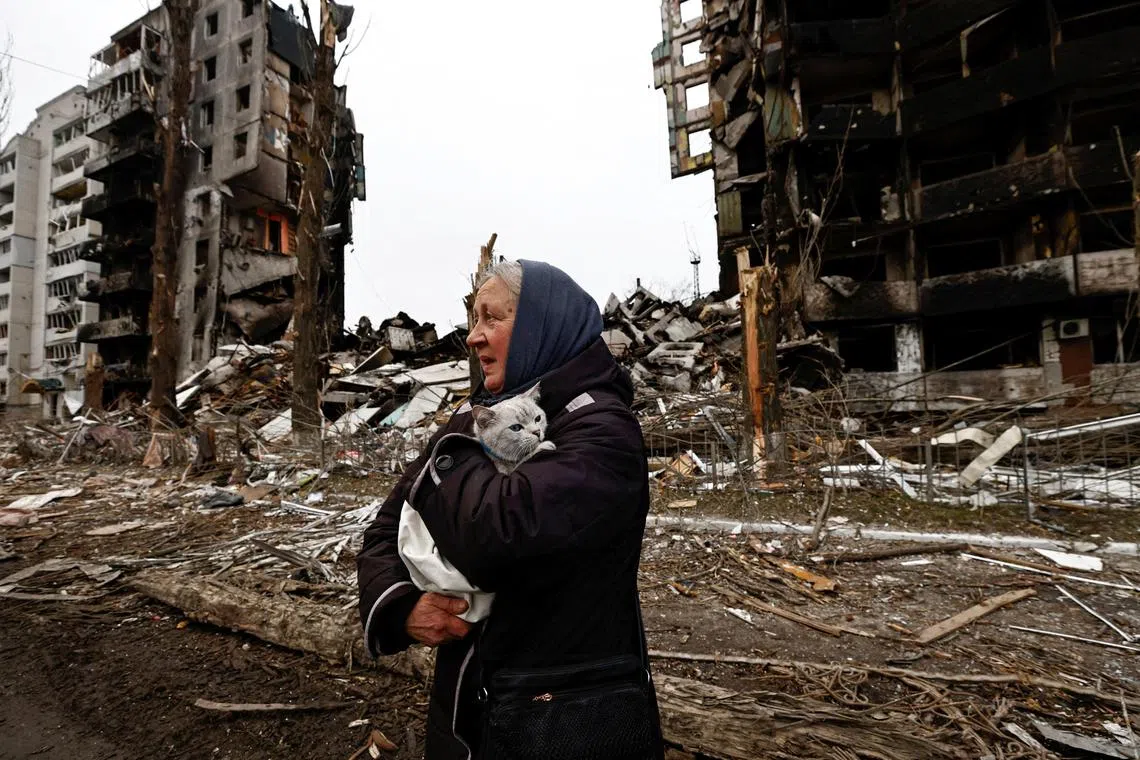Russia says it won’t accept US$60 price cap on its oil exports
Sign up now: Get ST's newsletters delivered to your inbox

The risk for oil markets is that if the cap is set too low, Moscow may threaten to shut down production – sending oil prices higher.
PHOTO: NYTIMES
BRUSSELS - Russia will not accept a price cap on its oil, the Kremlin said on Saturday, in response to a deal by Western powers aimed at limiting a key source of funding for its war in Ukraine.
The US$60 (S$81) a barrel price cap, previously negotiated on a political level between the Group of Seven (G-7) wealthy democracies and the European Union, will come into effect with an EU embargo on Russian crude oil from Monday.
The price cap will allow non-EU countries to continue importing seaborne Russian crude oil, but it will prohibit shipping, insurance and re-insurance companies from handling cargoes of Russian crude around the globe, unless it is sold for less than US$60. That could complicate the shipment of Russian crude priced above the cap, even to countries that are not part of the agreement.
Russian Urals crude traded at around US$67 a barrel on Friday.
Kremlin spokesman Dmitry Peskov said that Moscow had made preparations for Friday’s price cap announcement by the G-7, the EU and Australia, Russian state news agency TASS reported.
“We will not accept this cap,” RIA news agency quoted him as saying. He added that Russia would conduct a rapid analysis of the agreement.
Russia has repeatedly said it will not supply oil to countries that implement the cap – a stance reaffirmed by Mr Mikhail Ulyanov, Moscow’s ambassador to international organisations in Vienna, in posts on social media on Saturday.
“Starting from this year, Europe will live without Russian oil,” he said.
US Treasury Secretary Janet Yellen said the cap will particularly benefit low- and medium-income countries that have borne the brunt of high energy and food prices.
“With Russia’s economy already contracting and its budget increasingly stretched thin, the price cap will immediately cut into (President Vladimir) Putin’s most important source of revenue,” Dr Yellen said in a statement.
In comments published on Telegram, Russia’s embassy in the United States criticised what it called the “dangerous” Western move and said Moscow would continue to find buyers for its oil.
“Steps like these will inevitably result in increasing uncertainty and imposing higher costs for raw materials’ consumers,” it said. “Regardless of the current flirtations with the dangerous and illegitimate instrument, we are confident that Russian oil will continue to be in demand.”

A woman carrying her cat walks past buildings that were destroyed by Russian shelling, in the Kyiv region of Ukraine, in April 2022.
PHOTO: REUTERS
Ukraine on Saturday welcomed the price cap, saying it would “destroy” Russia’s economy.
“We always achieve our goal and Russia’s economy will be destroyed, and it will pay and be responsible for all its crimes,” Ukraine’s presidential chief of staff Andriy Yermak said on Telegram. But a cap of “US$30 would have destroyed it more quickly”, he added.
The US first proposed the cap as there were concerns in Washington that EU sanctions were so strict they would cut off Russian supply and cause a massive spike in global oil prices. REUTERS, AFP


